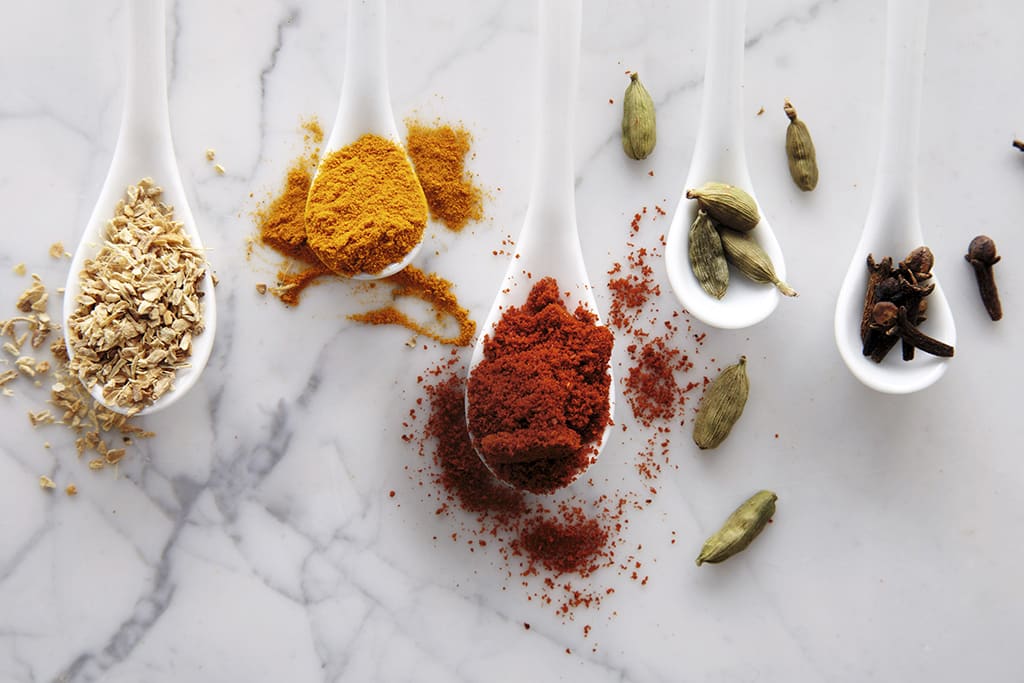Discover your ayurvedic type

An ancient Indian medical system, ayurveda (which means ‘knowledge of life’) is, in many aspects, surprisingly modern. In line with today’s tailored health techniques – such as DNA testing to work out the ideal diet for you – ayurveda encompasses the knowledge of how to live according to your unique make-up.
‘Ayurveda is a complete medical system because it not only helps you treat and manage conditions, it also deals with health in all its aspects: mental, spiritual, relationships and daily living,’ says Sebastian Pole, founder of Pukka Herbs and ayurvedic practitioner.
What’s your type?
‘Obviously we’re all unique, but ayurveda divides us into three constitutional types known as doshas – vata (air), pitta (fire) and kapha (earth),’ explains Pole.
You have a dominant dosha which is present from birth, but a variety of circumstances – such as stress levels and your diet – can cause a dosha to accumulate and become imbalanced. If that’s left unchecked, the imbalance becomes chronic and causes health problems.
Use our quiz below to work out your dosha – then follow the plan to reduce excess amounts and develop perfect health and vitality.
To find your dosha answer the following questions:
1 Your natural body frame (think back to childhood; an imbalanced dosha can mean you lose or gain more weight than you should) is:
a) Slim, either tall or petite, with prominent bones and little body fat
b) Medium, weight easily maintained
c) Large, solid bones, gain weight easily
2 What’s your skin texture?
a) Dry, cold and rough with cold hands and feet, tans easily
b) Warm and smooth, fair with freckles or easily irritated
c) Soft, cool, damp and pale
3 What’s your hair like?
a) Coarse or thin, wavy or curly, dry
b) Oily, straight, medium texture
c) Oily, glossy, possibly wavy
4 How’s your sleep?
a) Irregular – often have insomnia
b) Restful and consistent
c) Deep – you love a lie-in
5 How would you describe your personality?
a) Creative, sensitive, anxious
b) Organised, confident, prone to anger
c) Calm, reliable, laid-back
6 What’s your digestion like?
a) Irregular – you’re proneto bloating and constipation
b) Regular, although you can get heartburn
c) Sluggish
7 How do you tolerate temperature extremes?
a) You feel the cold easily, but love heat and sun
b) You hate the heat and burn easily
c) You have a high tolerance to cold and prefer the shade when it’s hot
8 How’s your energy?
a) Up and down
b) You have good consistent energy
c) You can take a while to get going but tend to have good stamina
What your results mean
Mostly As means you’re predominantly vata, mostly Bs suggests pitta, mostly Cs indicates kapha. Lots of people are a mix of two, so if you scored an equal or similar count on two doshas, you have a mixed-dosha constitution.
If you’re vata-pitta, follow a vata-reducing diet in the autumn and winter and pitta-reducing in the warmer months.
For pitta-kapha, follow a pitta-reducing diet in the summer and autumn and kapha-reducing in winter and early spring.
For vata-kapha, have a vata-reducing diet in the summer and autumn and kapha-reducing in the winter and spring.
Your vata plan
Vata is air – which means movement, cold, lightness and energy. When vata is too high, you may lose weight, experience cracking joints, dry skin, poor sleep and digestive problems.
Your foods
Warm, heavy dishes such as soups and porridge, plus root vegetables, sweet fruits and soaked nuts and seeds. Reduce dry, cold foods such as salads (unless they’re dressed well with oil), snack bars, crackers, crisps, ice-cream.
Your top supplements
Try triphala to stabilise digestion, and ashwagandha to ease stress and help balance your nervous system.
Your lifestyle tips
Try to have a regular routine. Keep warm, take non-intense, rhythmic exercise, such as dancing or yoga (hot yoga can be good for vata), and stay away from people or circumstances that make you feel insecure.
Your pitta plan
Pitta is fire – heat, passion and confidence. Having an overabundance of this dosha can cause flushing, skin irritation, loose stools, excess sweating and anger.
Your foods
Cooling and astringent foods like asparagus, salads, grains and fruits. Avoid spicy, pungent or salty foods.
Your top supplements
Aloe vera and coconut oil to cool and soothe.
Your lifestyle tips
Watch out for overworking and competitive environments. Work off your stress with swimming or cycling. Avoid getting too hot.
Your kapha plan
Kapha – earth – is heavy, solid and stable. When it’s too high, you may experience fatigue, congestion, aches and pains and water retention.
Your foods
Bitter and astringent foods such as black tea, vegetables and warm spices. Avoid damp, wet foods like dairy and cold drinks, and sweet, fatty foods.
Your top supplements
Turmeric to keep cholesterol down and reduce inflammation, ginger to reduce swelling and tackle aches and pains.
Your lifestyle tips
Keep moving to control weight and boost energy – try brisk walking and dynamic forms of yoga, such as vinyasa flow.











